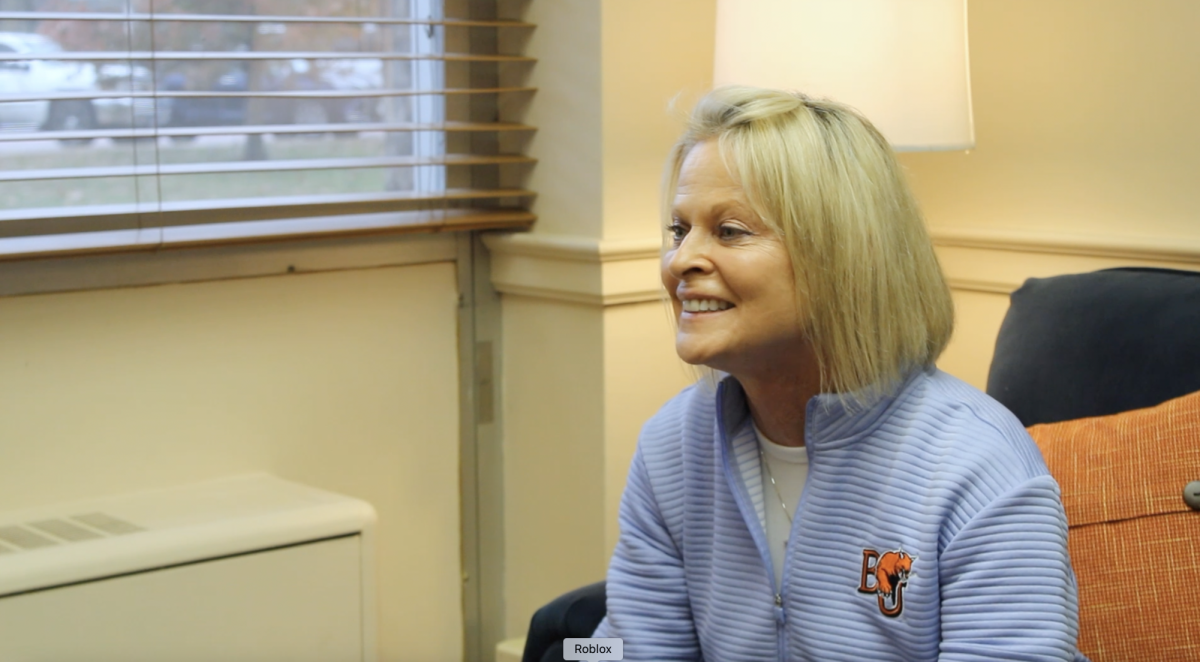02/01/08
Twenty-five freshmen who didn’t return to campus this semester are just another number adding to a trend in decreasing retention rates since fall 1999.
“I think these students are unprepared for college emotionally,” Dean of Students Cassy Bailey said of those leaving college.
This fall, eight freshmen students were deemed ineligible to attend Baker University following their final grades, Judy Smrha, assistant dean of institutional effectiveness, said. To reach ineligibility status as a freshman, students must maintain a GPA that is lower than 1.0.
Smrha said there are a number of reasons students could fail out of the university.
“Those who are lost include students who had to leave as a result of grades,” Smrha said about the retention rate. “It also includes other students who have left for other reasons. However, many times those two things are connected.”
Smrha said a correlation between low grades and students’ personal lives might exist.
“Say a student finds Baker a ‘bad fit’ for her,” she said. “She then becomes less motivated in class or she stops attending a class or two entirely. As a result, her fall GPA is low, and she’s declared ineligible, and maybe her grades are bad enough that she loses some or all of her financial aid. To an observer, it might appear that the poor grades caused her to leave, but the causality might not actually follow in that direction.” Louise Cummings-Simmons, vice president of enrollment management, said some students may not have an understanding of what to expect of college.
“I think you have students who come in from high school, and they don’t know what to anticipate, and it gets the best of them,” she said.
The percentage of freshmen Baker was able to retain in 1999 was 95.7 percent, a higher number than last year’s fall retention rate of 88.6 percent or this fall’s rate of 90.0 percent.Freshman Morgan Kollhoff said her roommate left because of grades.
“She got sick a lot so it caused her to miss school, and she got too far behind,” Kollhoff said. “When grades came out it wasn’t what she expected. She liked it here, it was just her grades.”
Kollhoff’s roommate was not the only student to leave Baker because of grades.
Many of the 25 freshmen who left Baker after the fall semester failed LA 101, Smrha said. About 12 students who were unable to pass the first portion of the LA series remain at Baker and will simply have to retake the course-perhaps in a special section of LA 101 that’s being offered now.
“Many of the students in this section are retaking it-either because they didn’t pass the first time or because they want to improve their grade from a previous attempt,” Smrha said. “We also have some new freshmen who start mid-year, so they often enroll in this spring section as well.”
There were two such students enrolled in the course this semester, Smrha said.
“The ones that failed are the ones that probably shouldn’t have,” Cummings-Simmons said of LA 101. “Some of them are really bright and were good students in high school, and they came here and didn’t step up to the plate and stay on top of things. It’s a whole other ball game here.”
Since many of the students who do poorly in classes at Baker were admitted with high GPAs, the question of admissions standards has arisen.
“Retention is about recruiting the kind of students that fit here, the kind of students who are going to be successful,” Cummings-Simmons said. “I think sometimes, educationally, students aren’t given what they need to come to college.”
Currently, Baker requires students to meet two out of three standards to get admitted into the school: a minimum GPA of 2.75, an ACT composite score of 18 or a class ranking of at least 50 percent.
Cummings-Simmons said the admissions standards are something she and Provost Randy Pembrook are considering revising.
“We need to keep in mind how that is going to impact the number of students we enroll,” Cummings-Simmons said about raising admissions standards. “When you change the standards, you change the number of students you bring in.”
For nearly 10 years, enrollment numbers have been on a steady increase, starting with a mere 184 freshmen students in 1999, peaking this year with a freshman class of 250 students.Although the enrollment of the university is increasing yearly, the incoming freshman ACT composite score is doing the opposite.
This year’s average freshman ACT score of 22.65 is the lowest in nearly 10 years. In 1999, the lowest enrolled freshman score was a 16, this year’s low score was a 13.
“Students need someone that’s going to push them in high school,” Cummings-Simmons said. “And I’m not saying those teachers aren’t there, but I think in education we get too focused on other things, and we forget about what is really important.”
For Bailey and Cumming-Simmons, one of the most important items on their to-do list is focusing on the students who are struggling.
“I know that there are two areas we really need to focus on,” Cummings-Simmons said. “We need to help students make the transition from high school to college and really make sure that students build good relationships with their advisers and within their living situations.”
Bailey said she and Cummings-Simmons have devised a plan to help bridge the gap between enrollment and retention. The plan was unveiled earlier this week and is dubbed “BON” or Baker Outreach Network.
“It’s a group of professors who meet from across campus to discuss early alerts,” Bailey said. “So if a student is missing classes or we notice a sudden change in a student, our group would be able to decide what the best triage would be.”
These groups would examine midterm grades in a concentrated effort, Bailey said.
In addition to BON, Bailey said she is hoping to implement an exit interview procedure with students who choose to leave the school.
“I want to sit down with students who are leaving and find out why they aren’t coming back,” she said. “It’s not about chastising them, it’s about finding out what we did wrong and what we did well.”
Determining why a student left is something Smrha said is often difficult to accomplish.
“It’s hard to tweeze out the affect of grades from everything else,” she said. “Most students who leave tell us it’s because of personal problems or financial reasons. Those are safe answers.”
Freshman Alex Hess said her roommate did not return after the fall semester for various reasons.
“I think her biggest thing was that she wanted to do a major that wasn’t offered at Baker,” Hess said. “She really liked Baker and was active in a sorority and on the dance team and really liked it. It was mostly because of her major.”
Despite students’ reasons for leaving Baker, Smrha said there are some things about the university that cannot be changed.
“We can’t change who we are,” she said. “All schools want to know why folks leave, but all schools struggle to figure it out.”







